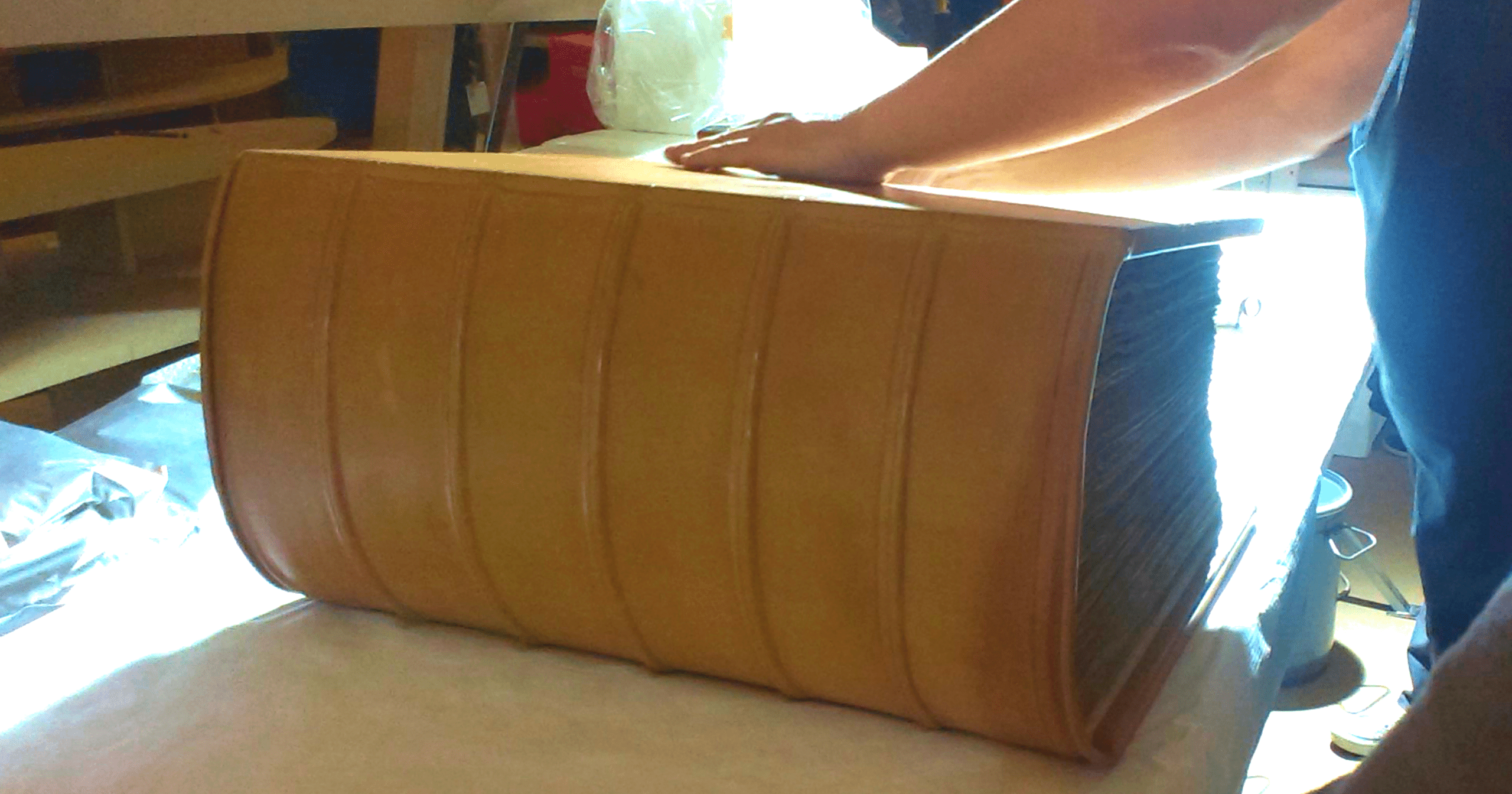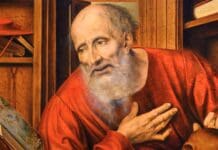The Codex Amiatinus is the earliest surviving complete Latin Vulgate Bible.
It was produced around 700 AD at a Benedictine monastery in northeast England as a gift for Pope Gregory II.
An immense tome of over 2000 pages, it weighs over 75 pounds. Measuring in at 19 1⁄4 inches tall, 13 3⁄8 inches wide, and 7 inches thick, it takes up the same amount of space as 570 eggs!
After the abbot Ceolfrid died on his way to deliver the Codex Amiatinus to Rome, it ended up at the San Salvatore Monastery at Mount Amiata (hence the name) in Tuscany.
It remained there for almost a thousand years until it was given to the Laurentian Library in Florence.
As the oldest complete copy of the Latin Vulgate, it helped the Church win “the battle for textual precedence” during the Counter-Reformation as it was older than any then-known Hebrew manuscripts used by Protestants.
In 1587, Pope Sixtus V consulted the Codex Amiatinus for the creation of the first ever papally authorized Vulgate Bible, the Sixtine Vulgate.
Pope Pius X did similar in 1907, having Benedictine monks in Rome prepare a critical edition of the Old Testament from it.
In 2018, the Codex Amiatinus returned to England for the first time in over 1,300 years.
It was the centerpiece of a “once in a generation” Anglo-Saxon exhibition at the British Library in London.
Lead curator Dr. Clare Breay remarked of the “behemoth Bible.”
“I went to see it myself, and going to see it myself was an incredible experience. Obviously I had read about it, I had read the dimensions and I had seen a photograph of it. But until you actually see it yourself you can’t really take in the size of the book, the spine is a foot thick, because it contains the whole bible. There are over 1,000 leaves of parchment, so over 2,000 pages of text. Most biblical books that were circulating at that time were either gospel books or psalters, books of the psalms. It’s very unusual to have a whole bible. So the fact that it has survived intact is absolutely incredible. Codex Amiatinus really is a treasure.”
🙏 Thank God for this historical treasure!
Photo credit: Remi Mathis via Wikimedia


















GOOD
https://careerstar01.blogspot.com/